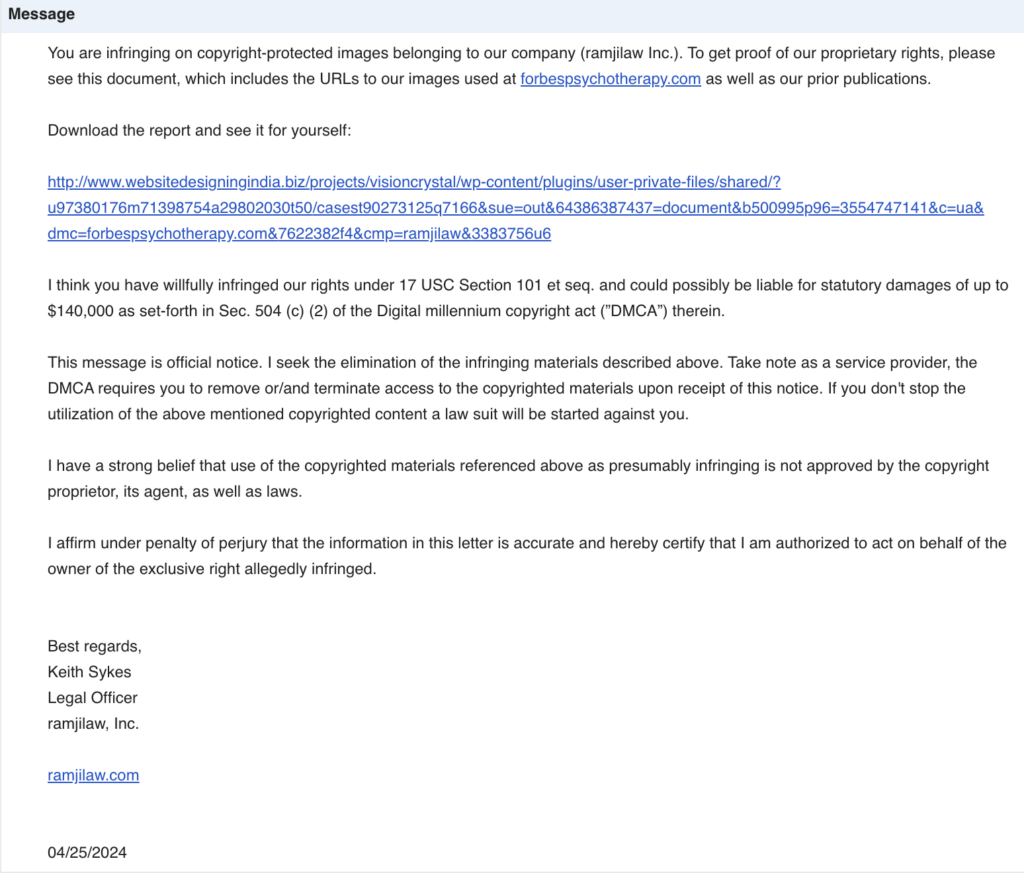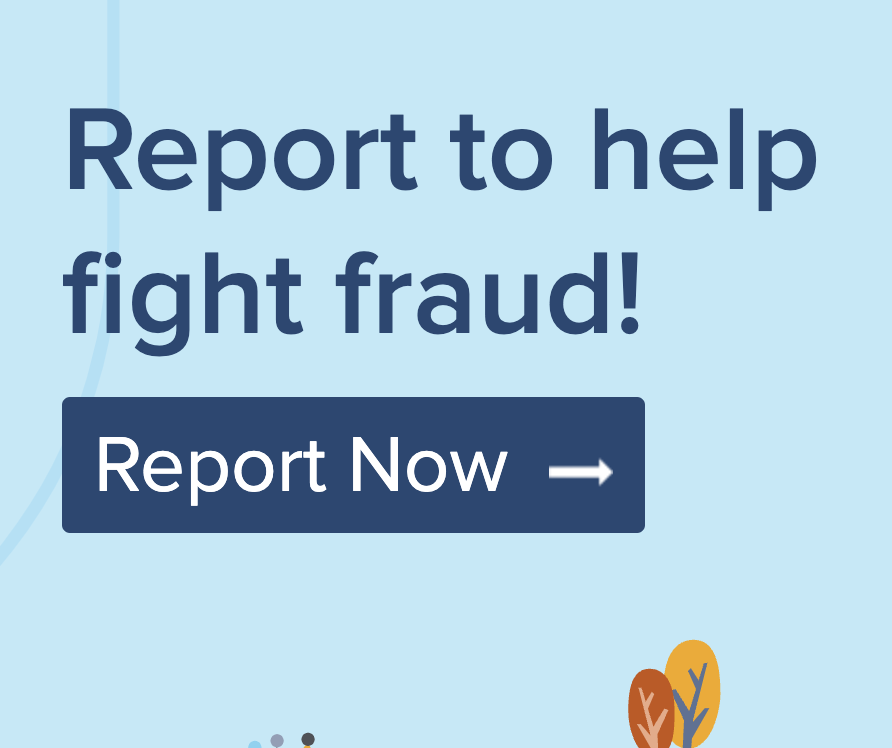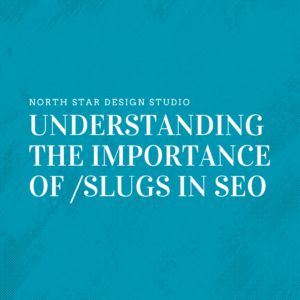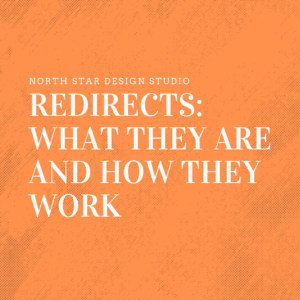Have you ever received a message starting with “Your website or a website that your company hosts is infringing upon my copyrighted images”? If so, be wary—it’s likely a fraud. Avoid interacting with the link provided.
As of April, 2024, this topic has garnered unprecedented attention, indicating a resurgence of this copyright infringement scam. Exercise caution!
This scam targets WordPress sites via contact forms and employs various pseudonyms to appear credible. The message claims to provide “proof” of infringement through a link that supposedly leads to a document. However, this link is dangerous—it may install harmful software such as ransomware or malware on your computer.
If you receive a message like this, disregard it, as it is definitely a scam. You have not violated any copyright laws. Here’s the general structure of the scam message:

Hello!
I am [Fake Name].
Your website, or one that you manage, is using copyrighted images that I own.
You can find the documents containing the URLs to the images you’ve used on my website, along with my previous publications for proof of my ownership rights.
Please download and review the document immediately:
[Link—do not click!]
According to Section 504(c)(2) of the Digital Millennium Copyright Act (DMCA), you might be liable for statutory damages up to $120,000.
This notice is formal. I request the removal of the allegedly infringing materials as listed above. As per the DMCA, you are required to act and remove or block access to the content upon receiving this notification. Failure to do so may result in legal action.
I believe the use of the copyrighted material as described is not authorized by the copyright owner, their agent, or the law.
I affirm, under penalty of perjury, that the information in this notification is accurate and that I am the copyright owner or am authorized to act on their behalf.
Spotting Similar Scams
How can you tell it’s a phishing scam? First, legitimate copyright claims are typically detailed and sent by legal representatives, not vague and threatening like this. The misuse of legal terminology, poor formatting, inconsistent punctuation, and incorrect legal references are red flags. Scammers also tend to use generic file storage services for their malicious links—another sign to stay alert. And, finally, one of the more obvious characteristics of a SPAM message: the convoluted or generic email address. These will often be gmail/aol/yahoo or a convoluted email (ie: @legal.mailchimp.suit.com).
TIP: All businesses should be using email addresses tied to their primary domain (ie: begin@northstardesign.studio). Learn why in this article: 3 Reasons to use a professional email address and how to create one
Origin of These Fake DMCA Notices
Data shows that these fraudulent messages are often disguised as coming from reputable companies like Lawfirms, Google, CMS platforms like Mailchimp, and others, attempting to seem legitimate by using corporate names in the sender line.
What Should You Do?
The best response to such scams is to ignore them. Genuine copyright issues are usually resolved amicably and through proper channels, not through contact forms and threatening messages.
For U.S. residents, you can report these frauds to the Federal Trade Commission at reportfraud.ftc.gov.
If You’ve Interacted with the Scam:
- If you clicked on the link: Do not proceed with any downloads
- If you downloaded the file: Stop immediately and contact your IT department for assistance.
TIP: For CT businesses, training their team how to spot phishing scams is imperative. Having a professional IT service (ex: AmaTech Solutions) in your Rolodex to secure your systems and train people is invaluable (and might even be required by your insurance company!)
Summary
If a message claims your website is infringing on someone’s copyright with this specific wording, it’s a scam aiming to infect your computer with malware or ransomware. Do not interact with any part of the message.
TIP: Adding captcha to your contact forms is one way to help minimize the amount of general spam your website captures. You can read more on this and other tips in our article: Contact Us Page Design: 9 Amazing Tips+ Examples





